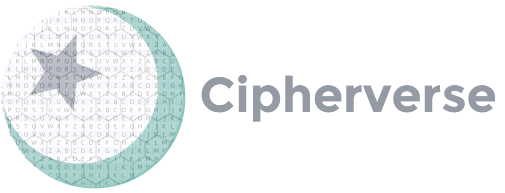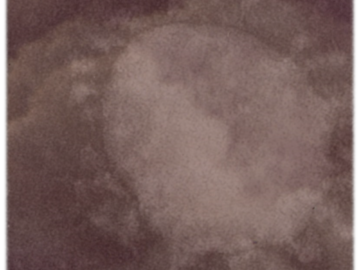Peace upon those who seek it.
Over the years in our conversations with Soulaiman Soussi he’s mentioned some interesting points that have stuck with us. Imagine a single word or phrase subtly changing the way you see the world, opening you up to a different view point, allowing you to see the familiar on ways you were incapable of before. Because often times we are so used to thinking about things in one way only that we might miss absolutely obvious things right in front of our eyes.
These nine themes can be worked out further and formalized, but they stand here as a few points for clever or smart people to think about today, no matter if you are a Muslim, Atheist, Agnostic, Christian, Jewish, Hindu, or even Scientologists. Or something else altogether.
Each in themselves stand as formal laws in the deciphering work, and can be restated to give them full justice.
And what’s more, if you’re Muslim, even a light and passing consideration of these themes should have a medicating affect on those afflicted with the Kharijite/Wahaibist/Salafist memetic strain.
If you can’t make your way through this list consider it a useful weeding out filter; do you really want to be the type of person who has higher than a snowball’s chance on a hot day of figuring out the enigma of the Dajjal? Do you want to be one of those souls who might be able to penetrate beneath the surface of things, and possibly do something useful once they’ve done so, or not?
If so then these themes will help you.
Point 1. If you can’t name the beast then you can’t control or fight it. If you can’t name it then you cannot have certain knowledge of it. If you do not have certain knowledge of it then you cannot build on it.
Consider this; if you are certain of your last step then its easier to take the next step after. Think about it. When your previous step was made in certainty your next step will be easier, but if your previous step was made in doubt your next step will be much harder. In this way, nothing solid can be built on doubt or speculation. Speculative doubt (dhan, ظانّ ) can get you started looking and investigating in a direction, but you cannot build something solid or lasting on it.
When you name something then you can mentally handle and manipulate the concept. You can refer to it and explore it. If you cannot “put your finger on it” if it is “ineffable” if you “cannot articulate it” you may know it implicitly, in a sort of latent way, then you cannot extrapolate on your knowledge of the beast. You cannot usefully build upon your doubt, or do much with it.
Yet most everyone builds on doubt, all the time, everywhere. But they end up with an increasingly unstable edifice, as they get to the top, the present, the now.
Once you have named the thing, then you can begin to truly contend with it. Therefore the word is important. If you “have the words” for something, then you are in a position to begin to do something with it.
Point 2. The first rule of history is, never underestimate its people. Do not assume that the people in the past were more stupid than you are. It’s quite possible they were smarter in many ways. This applies to politics, migrations, building, or any domain of past human life.
When you see historical figures do something that seems to you to be puzzling, naive, or stupid, it is foolish to assume they didn’t know what they were doing or were stupid and naive. Whether it’s Abu Bakr ibn Abi Qhuhafa and ‘Umar ibn al-Khattab, or Sargon ben La’ibum, or Julius Caesar and Vercingetorix, people in history were often not only as clever as you think you are, but sometimes more clever.
Pay attention to this, if you are attributing something to a past figure that you would not apply to yourself, out of charity or generosity, assuming they were naive about something, beware. They don’t need your charity. They went about their lives quite well without you and your charity. This is a sign you really don’t understand what was going on, or that your understanding is lacking. And if your understanding happens to be borrowed from other authorities, then their understanding was lacking. If you are charitable with a past figure you think you understand, but ultimately you understand nothing.
If someone in history did a thing for which you would judge yourself in a certain way if you were do it, then do not be charitable about it.
There were Paleolithic and neolithic people more wily, perceptive, and penetrating in thought than any of us. They did not have our technology, or our scientific knowledge of how the world really works, but this doesn’t mean they couldn’t do incredibly rational things with what they had.
Many of these people, if they were put in your shoes and given your own gadgets, could probably do things that you couldn’t even conceive. You and I are not that clever.
This rule is one that fringe “Ancient Astronaut theorists” flagrantly violate. This is because they are not that clever, and simply cannot conceive that people with stone-age mentalities could figure out how to do what seems to be incredible things.
But people with stone-age mentalities had the same basic drives we do today, just fewer gadgets to distract themselves with. Instead of tweeting or poking around on Facebook, or any number of distractions that have steadily mounted for the last 300 years or so, they had a long time to figure out how to move really big rocks. What’s that impressive about moving really big rocks and piling them on-top of each other? Have you wondered why the Quran constantly mentions ancient perished So what if the Bosnia pyramids may appear to have an ancient cement aggregate like coating. Is it that far of a leap that people 7000 years ago couldn’t have figured out how to crush certain rocks, cook them, and mix them with water?
Point 3. Know your stuff, and know how to think. A good way to learn how to think is this; Go read Sir Author Conan Doyle’s Sherlock Holmes stories. The original ones. All of them. Indeed, read them twice.
If you read them as a child then sit down, and re-read them. Pay close attention to how Holmes thinks. After you do this, here is something that you need to understand. Sherlock Holmes is not the real smart guy.
It’s his brother Mycroft Holmes. Mycroft is the guy who never leaves his club.
Notice that every time Sherlock gets in a truly deep bind that he can’t even think his way out of, he goes and visits this old establishment club, and chats with his brother Mycroft whose only occupation in life, outside of occasional Government Intelligence work, is sitting in an armchair reading newspapers all day long.
When Soulaiman Soussi gave us this advice, he mentioned that when he was younger this bit about Mycroft stuck with him.
If you know your stuff, really know your stuff, you don’t have to run all around the world, you can survey and understand the world from your armchair.
If you want to be able to better think, about the world and its politics, or even about religion, scripture, the Qur’an and hadith, or anything else even, go read some Sherlock Holmes and actually think about what you are reading.
Point 4. The Qur’an has to be read intelligently, this means pay attention to things like grammar. Grammar is a key to understanding the Qur’an. Structured grammar is the key to real language in the proper sense, as opposed to informal spoken dialect. You have to read the Qur’an the way a mathematician reads equations and handles variables, constants, and symbols.
The Qur’an’s grammar matters absolutely and conveys vital meaning. Tense, person, case, all matter for the message.
What is obvious to the wise is subtle to the dummy. If something is worded in the dual and not the plural then it is that way for a reason. If there is a dialog or discourse between people, and you ignore its changes in tense, mood, and person, then you will ignore part of it’s message.
Classical Arabic, the most ancient living language in the world, has a structured and formal grammar unlike that of any other ancient language. This formal grammar conveys meaning on a mathematical level. Sanskrit does not, Avestan Persian does not, and everything out there written about them and their grammar is post-Islamic, when you examine it. Arabic is the formal model of a language that all of these other ancient languages try to match up to. The Qur’an’s use of Classical Arabic conveys information mathematically, precisely; if you do not understand the grammar deeply, you will miss much of the message even if you understand the vocabulary.
Point 5. Henry Truman once said that nothing is new but the history you don’t know. However what you don’t know should be intolerable to you. Therefore, catch up already.
In the so-called “Truth Movement” it’s common for people to say they “woke up.” You see this idea of “waking up” being discussed more and more.
It’s like this. Most people float and dream their way through life, on assumptions and what little they were taught. Until the rug is pulled out from under their feet by faceless nameless forces they only half understand.
When this happens they react, thinking that they are waking up. In reality they are simply reacting to the immediate stimulus. The reaction is usually out of nostalgia and sentimental seeking a half remembered past that they thought was better.
You fear what happens when you don’t obey the authority figures you were trained to obey.
When people talk about “waking up” to “the world as it is” they are talking about things no one is concerned about until it personally hits them. These same people are content while it hits someone else.
The faceless authorities whom you think manipulate you and your life rely on this, and on how malleable you and your children are. Reflect on this; our society now accepts as normal children being literally drugged by their school authorities. Most people now see this as commonsense normalcy. Few actually reflect and think about what it took to get to this level. Fewer do so unless it affected their family first.
They fall right back into another dream because of the failure of it, it was all personal and selfish, I was not a universal true awakening out of empathy and understanding for everyone, and not just themselves. It would be harder to fall back into the walking dream if their wake-up was a true and universal one.
Point 6. Everyone makes too big of a deal of their culture, history and language. Only someone who is truly multicultural and multilingual can critique other cultures’ and languages’ mediocrity as well as their own. This starts with a radical sort of honesty: the honesty of being a person who can see their own people’s, culture’s, and language’s mediocrity.
Most people lack the courage, or the ability, to see their own family’s, culture’s, and people’s mediocrity.
This is where we get self-aggrandizing lies, in national, racial and ethnic narratives and in historical literature. Entire systems of thought have been erected, academic schools of thought and governments formed, and untold millions of human souls reduced to thralldom, slavery, and massacre on the basis of self-aggrandizing liars making things up about their family, ancestors, folk, people, race, and their nation.
These stories and narratives exist because they are unable to face the mundane nature of their situation and past. They do not want to admit their own mediocrity. This prevents them from changing.
Point 7. Change cannot occur in a closed system, a body moving at a constant speed will roll continually until affected by an outside force. Left alone, each of us is a closed system, until someone else comes along. Just because we are adults doesn’t mean that we are entirely self-sufficient. Sometimes people need someone, an outside agent, to awaken something inside of them.
“The hand of Allah is above their hands,” (إِنَّ الَّذِينَ يُبَايِعُونَكَ إِنَّمَا يُبَايِعُونَ اللَّـهَ يَدُ اللَّـهِ فَوْقَ أَيْدِيهِمْ) Qur’an chapter 48 verse 10(سورة الفتح – ١٠). The hands of many is being spoken of here, not the hand of one person.
Each of us sometimes needs someone to be with us, to bring up a new idea, for something new to happen. The whole world, in this sense, is a closed system, and rarely punctured with someone bringing something new. This is what Prophethood (Nubuwwa) is all about.
The world sits as a closed memetic system, with different permutations and variations of existing old ideas and concepts bouncing around, playing out, until someone and something comes in from Outside and contributes something new. A memetic catalyst, if you will.
Like a chemical catalyst, a very small amount of this catalyst acts like a dye in a vat of liquid. A small amount changes the color of the entire vat. Or it is like opening a skylight, in a room of absolute darkness. Suddenly the room has light.
History from that point is an unfolding of the consequences of this new body of ideas. Some people steal from it, take a bit from it but not acknowledge its source, and try to integrate or harmonize it with their old tired inherited crap, legacies from others unquestioningly passed on. Some people are honest, acknowledge it, and try to carry it while not fully understanding what they try their best to carry.
An infinitesimally small few will, however, deeply explore and plumb it, try to renew it when it is forgotten, and only the one who does dare strip themselves of their “precious”inheritance is able to gain full understanding of the whole of it, in a way that the rest of humanity declined to.
Point 8. Dishonest people do not acknowledge their teachers and sources. This is the basis of intellectual and personal dishonesty. When you learn something from someone admitting it is intellectual and personal honesty.
When you consciously claim that something you learned from elsewhere is your own, then you are stealing. Yet, you will not truly understand an idea until you have grown to “own it” in a sense. To own and be able to state it in your words. There is no real contradiction here.
The problem with this ingratitude is memetic, you gain one small thing, mastery of a branch or piece of knowledge, but you lose the greater – your personal honesty.
The source of all injustice and sin is lying. Small ones lead to bigger ones, which lead to deadly ones. 1.3 Million Iraqis were murdered because a son of a bitch lied about weapons of mass destruction. So lying preceded wholesale murder and slaughter.
This is why you can’t benefit from what you stole, because the whole system becomes corrupted by that lie at its foundation.
As a closed system, affected by an outside force – a teacher or source of information, most people should acknowledge their sources but they do not. There are real dangers to this, if you think about this for a bit you may begin to realize some of the advantages and benefits to admitting what your sources were, as you continue to learn and mature, and honestly grow to “own” an idea, as it becomes your own, integrated into your mind and life in a healthy and beneficial way.
Point 9. People today are addicted to noise. They are addicted to the noise because they are trying to tune out their inner demons. If you have you never wondered about it then you should.
After wondering about this can you then wonder why this is so? If you can wonder this, then why not consider yourself; are you also addicted to noise?
In coffee-shops, supermarkets, in bars, hookah spots, restaurants, elevators, and shopping malls; everywhere people are surrounded by droning music. Almost all of it, if you really pay attention to it, is simply noise.
But this is not only pushed on people; they choose it. Notice how everywhere people go they seem to be listening to something. Notice how many people on the street, at work, even at home, go about with ear-bud headsets, no matter what they are doing. They are drowning out their inner demons with noise. But this does not cure them.
Until this beast was named you probably didn’t even consider it. Now that it’s been identified, and named, you can start to wrestle with it.
No one wants to consider what is really going on and dealing with it, they choose to shove something in their ears and sit in front of TV several hours a day.
These are nine useful points to consider and think about.
Peace upon those who seek it.


